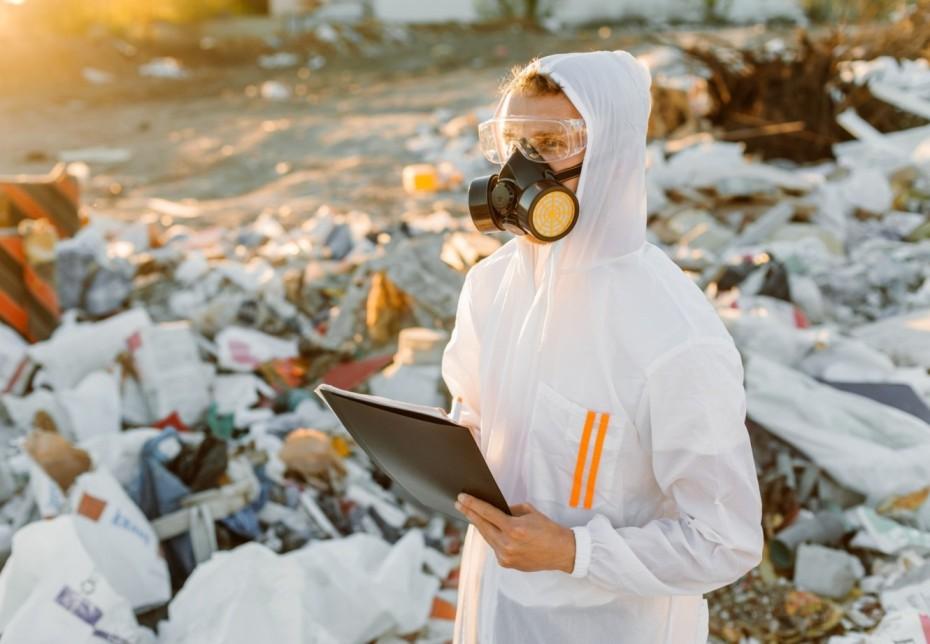What is CPCB? The Key Role of the Central Pollution Control Board in Environmental Governance

India's environmental health is a growing concern, especially with rapid industrialization and urbanization. To address the challenges posed by pollution and ensure a sustainable future, the Central Pollution Control Board (CPCB) plays a vital role in overseeing and regulating environmental standards. But what is CPCB, and how does it function to safeguard our ecosystem? Let’s dive deeper into this essential organization’s mission, role, and influence.
What is CPCB?
The Central Pollution Control Board (CPCB) is a statutory body under the Ministry of Environment, Forests, and Climate Change (MoEF&CC), established in 1974 by the Government of India. The CPCB's primary responsibility is to monitor and control pollution levels across the country. It works to improve the air, water, and soil quality by setting standards for pollution control and providing guidance to industries, states, and the public.
The Key Responsibilities of CPCB
The CPCB has a broad range of functions to manage and reduce pollution:
1. Setting Standards
One of the core functions of the CPCB is to set national standards for various pollutants, including those in air, water, and soil. These standards ensure that industries and organizations comply with environmental regulations to minimize harmful emissions and waste.
2. Monitoring Pollution Levels
The CPCB collects data on pollution levels across different regions, maintaining a network of monitoring stations. This data helps evaluate the effectiveness of pollution control measures and identify areas that need attention.
3. Environmental Audits
The board conducts environmental audits to assess the compliance of industries with environmental standards. These audits provide valuable insights into the efficiency of pollution control measures and help identify areas for improvement.
4. Awareness Programs
The CPCB works towards raising awareness about pollution control and environmental protection. It conducts campaigns, workshops, and seminars to educate the public, industries, and governments about sustainable practices and their importance.
5. CPCB Certification
The CPCB certification process plays a crucial role in ensuring that products, like CPCB certified compostable bags and other eco-friendly solutions, meet the necessary environmental standards. These certifications confirm that the product meets specific pollution control requirements, making it an essential step for businesses and manufacturers.
CPCB's Role in Promoting Sustainable Practices
One of the significant ways in which the CPCB drives environmental sustainability is by promoting alternatives to plastic. Products like compostable shopping bags have gained immense popularity due to their reduced environmental impact. The CPCB supports the use of sustainable alternatives and provides certifications to ensure these products meet eco-friendly standards.
The CPCB certified compostable bags are made from plant-based materials that break down naturally, reducing the long-term environmental footprint left by traditional plastic bags. This initiative is part of a larger effort by the CPCB to reduce plastic waste, which has become a critical environmental issue in India and globally.
How CPCB Certification Benefits Businesses and the Environment
Having a CPCB certification for products like compostable bags signifies that a company complies with environmental norms and standards. For businesses, obtaining CPCB certification offers multiple advantages:
-
Trust and Credibility: Customers are increasingly aware of sustainability. Having a CPCB certification for your products demonstrates that your company is committed to environmental protection, enhancing your brand's reputation.
-
Legal Compliance: Many regulatory authorities require products to meet CPCB standards, particularly in sectors dealing with waste management, packaging, and consumer goods. This certification ensures that your business stays compliant with national laws.
-
Marketability: As sustainability becomes a driving force for consumer decisions, businesses with certified eco-friendly products, like compostable shopping bags, are well-positioned to attract environmentally conscious customers.
Conclusion
The CPCB plays a pivotal role in India's environmental governance by monitoring and controlling pollution and ensuring that industries comply with regulations. Its efforts have led to the development of sustainable solutions, such as CPCB certified compostable bags, that help reduce pollution and promote responsible consumption. For businesses, obtaining CPCB certification is not just about meeting regulations; it's about contributing to a cleaner, greener future while gaining the trust of consumers.
By embracing the standards set by the Central Pollution Control Board, companies can lead the charge in environmental protection, helping to ensure a better quality of life for future generations.







